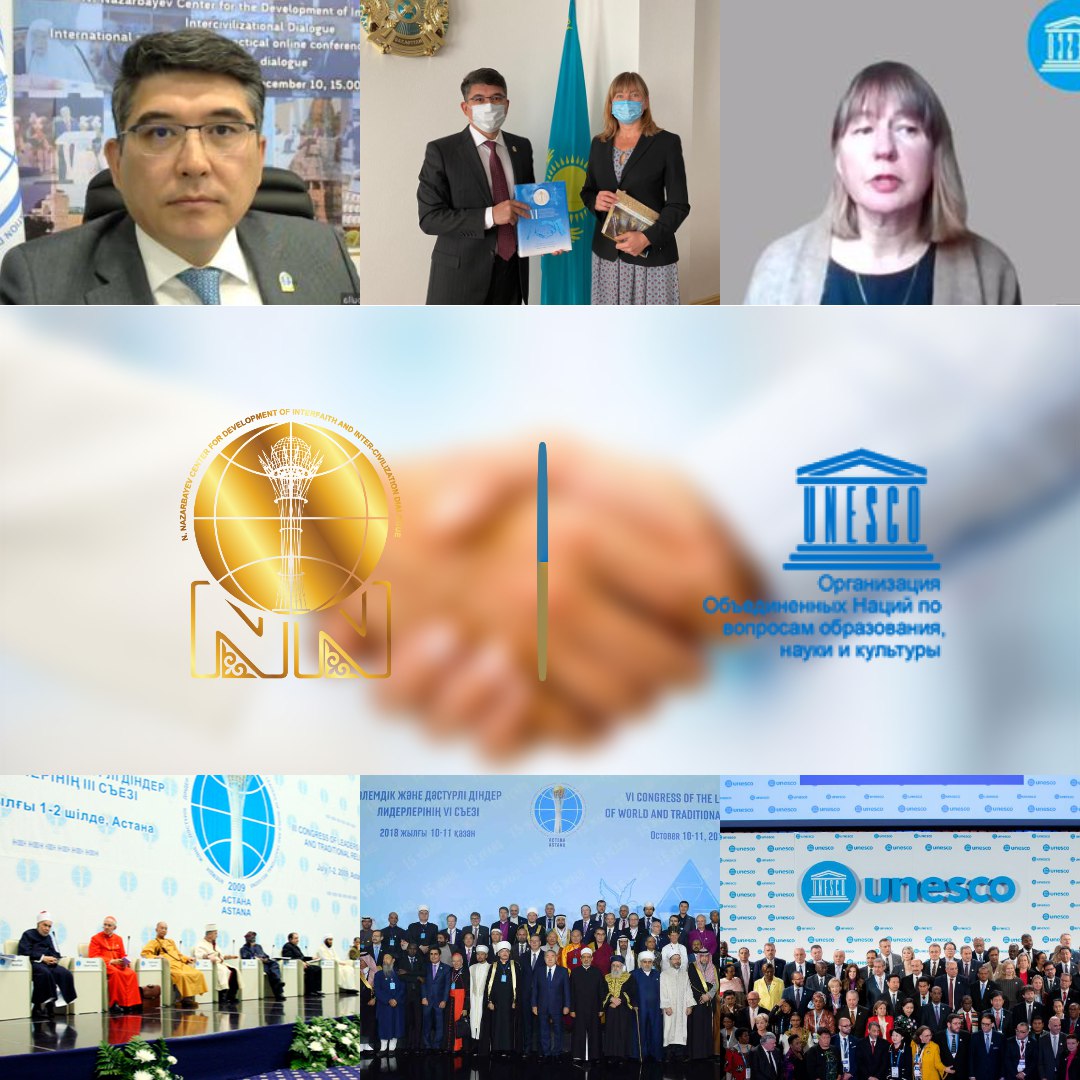In order to establish and develop all-round cooperation and expand intercivilizational dialogue in education, culture and science, on January 19, N. Nazarbayev's Center for the Development of Interfaith and Intercivilizational Dialogue and the UNESCO Cluster Office in Almaty signed a Memorandum of Understanding.
The Memorandum provides for joint activities to increase the effectiveness of efforts taken to ensure interaction with international religious associations and their spiritual leaders, conclude agreements in the development of scientific research, create dialogue platforms for discussing interreligious and intercultural issues, including assistance in promoting the Kazakh experience of interfaith dialogue on the international level.
Chairman of the Board Altay Abibullayev outlined the key international initiatives of the N. Nazarbayev Center and the Congress of Leaders of World and Traditional Religions, aimed at strengthening interreligious mutual tolerance and global dialogue of different cultures. The high significance of the agreements with UNESCO was noted, which clearly testify to the high recognition of the achievements of the spiritual diplomacy of Kazakhstan.
Krista Pikkat expressed a special interest of UNESCO in holding joint events with the N. Nazarbayev Center aimed at a multilateral dialogue on the rapprochement of cultures.
For reference: The United Nations Educational, Scientific and Cultural Organization (UNESCO) was established in 1945 as one of the specialized agencies of the United Nations. The UNESCO Office in Almaty was opened in 1994 and operates in four countries: Kazakhstan, Kyrgyzstan, Tajikistan and Uzbekistan. Activities in each country are carried out through the National Commissions for UNESCO and a network of partners in their respective fields of competence.
The main mission of the Organization is to contribute to building peace and human development through education, science, culture, communication and information.



















